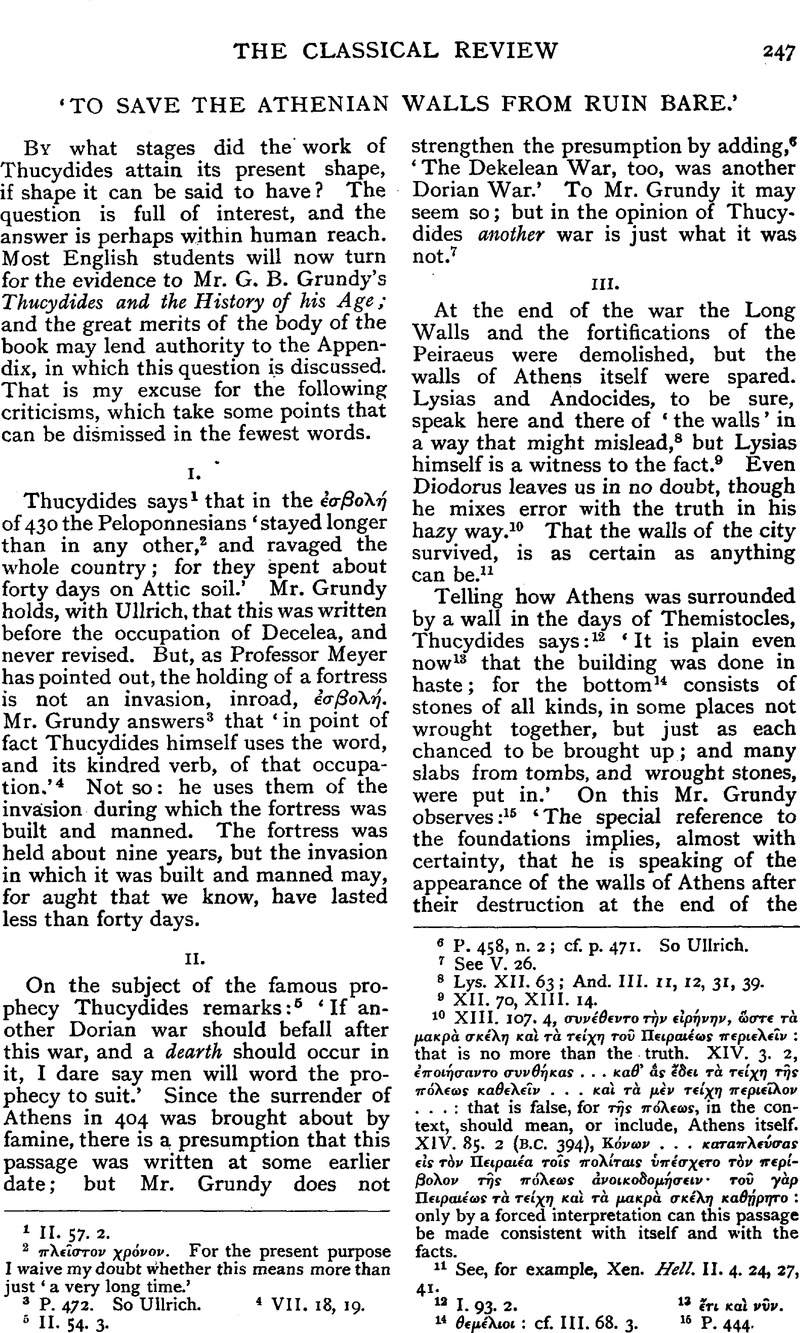No CrossRef data available.
Published online by Cambridge University Press: 27 October 2009

page 247 note 1 II. 57. 2.
page 247 note 2 πλεῖτον χρ⋯νον. For the present purpose I waive my doubt whether this means more than just ‘a very long time.’
page 247 note 3 P. 472. So Ullrich.
page 247 note 4 VII. 18, 19.
page 247 note 5 II. 54. 3.
page 247 note 6 P. 458, n. 2; cf. p. 471. So Ullrich.
page 247 note 7 See V. 26.
page 247 note 8 Lys. XII. 63; And. III. 11, 12, 31, 39.
page 247 note 9 XII. 70, XIII. 14.
page 247 note 10 XIII. 107. 4, ![]() that is no more than the truth. XIV. 3. 2,
that is no more than the truth. XIV. 3. 2, ![]() …: that is false, for τ⋯ς π⋯λεως, in the context, should mean, or include, Athens itself. XIV. 85. 2 (B.C. 394),
…: that is false, for τ⋯ς π⋯λεως, in the context, should mean, or include, Athens itself. XIV. 85. 2 (B.C. 394),  only by a forced interpretation can this passage be made consistent with itself and with the facts.
only by a forced interpretation can this passage be made consistent with itself and with the facts.
page 247 note 11 See, for example, Xen. Hell. II. 4. 24, 27, 41.
page 247 note 12 I. 93. 2.
page 247 note 13 ἔτι κα⋯ ν⋯ν.
page 247 note 14 θεμ⋯λιοι: cf. III. 68. 3.
page 247 note 15 P. 444.
page 248 note 1 The same mistake is made in Baedeker's Greece, p. 21: ‘The fortifications of Athens and the Piraeus and also the Long Walls uniting them were demolished.’
page 248 note 2 I. 93. 3.5.
page 248 note 3 ν⋯ν ἔτι.
page 248 note 4 P. 444.
page 248 note 5 I. 10.
page 248 note 6 P. 421.
page 249 note 1 Viz. between the strength exercised by a city in its prime, and the impressiveness of its ruins.
page 249 note 2 V. 26. 1.
page 249 note 3 IV. 1.
page 249 note 4 IV. 104. 5.
page 249 note 5 Cf. III. 39. 8, 46. 3, 50. 3; IV. 69. 4; V. 52. 1, etc. Plut. Lys. 15, ![]() .
.
page 249 note 6 It is found in a late MS.
page 249 note 7 XII. 70, XIII. 14.
page 249 note 8 Lys. 14.
page 249 note 9 Hell. II. 2. 20.